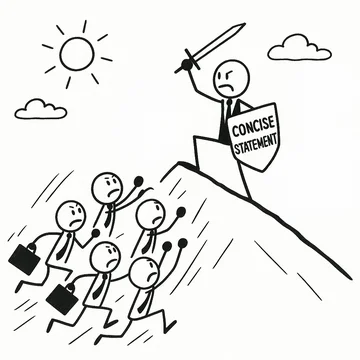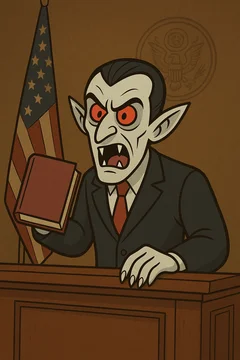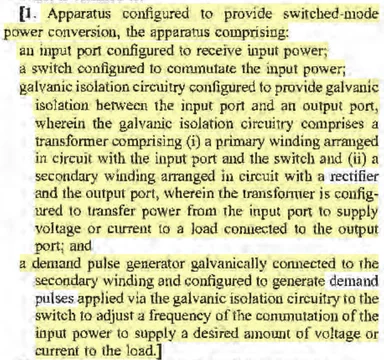
As we've previously noted, Judges Connolly, Noreika and Hall all require parties to submit statements of material facts with any summary judgment motions. We've also noted the dangers of listing unnecessary "material facts." A new decision from Judge Connolly, however, suggests that a barebones statement of facts can be just as dangerous.
Motion for Summary Judgment Denied For Discussing Material Fact Not Included In Concise Statement
The defendants in Amgen Inc. vs. Hospira, Inc., C.A. No. 18-1064-CFC, moved for summary judgment of non-infringement, and submitted an accompanying statement facts as required by Judge Connolly. See id., D.I. 205, 207. The thrust of their argument was that the process for making their product included an "intervening precipitation step" which took it outside of the purview of the claims (and had in fact been surrendered by the plaintiff during prosecution). See id., D.I. 296 (D. Del. May 20, 2021) (quoting D.I. 206).
Judge Connolly denied the motion on procedural grounds, in a brief 2-page order, stating:
Although Defendants assert as a statement of material fact in their briefing that "Pfizer's manufacturing process contains an intervening precipitation step," D.I. 206 at 2, they did not make that assertion in the concise statement of facts required by the Scheduling Order. The terms of the Scheduling Order could not be clearer: "Any motion for summary judgment shall be accompanied by a separate concise statement detailing each material fact as to which the moving party contends that there are no genuine issues to be tried that are essential for the Court's determination of the summary judgment motion (not the entire case)." D .I. 26 at 10. Because Defendants did not comply with the Scheduling Order's requirements for summary judgment practice, I will deny their motion.
The Concise Statement of Facts Included Citations Supporting the Relevant Fact
Notably, defendants' concise statement of facts did include several statements that appear to support the proposition that their manufacturing process contained the relevant "precipitating step":
- "Amgen’s expert, Dr. Zydney, admitted that he has 'no basis to dispute' the statement in Pfizer’s aBLA . . . describing the removal of precipitated impurities during Pfizer’s [redacted]." (Id., D.I. 268 ¶ 13)
- "Dr. Zydney acknowledged that Pfizer’s documents indicate that at Pfizer’s [redacted] 'there is some material which precipitates'” (Id., ¶ 14)
- "Dr. Zydney admitted that 'there were certainly documents that said that precipitat[ion] occurred' in Pfizer’s process and that since he has not seen Pfizer’s process in operation, he has 'no basis to contest that there may have been precipitation.'” (Id., ¶ 15).
Future litigants would thus be advised to state any facts they intend to rely on plainly and at a high level, as opposed to breaking them down into the bits of evidence that support them. As Judge Connolly notes elsewhere in his form scheduling order, "'Judges are not like pigs, hunting for truffles buried in briefs.'" See Patent Case Scheduling Order In Cases Where Infringement Is Alleged (Rev. Mar 2, 2020), ¶ 10 (quoting United States v. Dunkel, 927 F.2d 955, 956).
If you enjoyed this post, consider subscribing to receive free e-mail updates about new posts.




